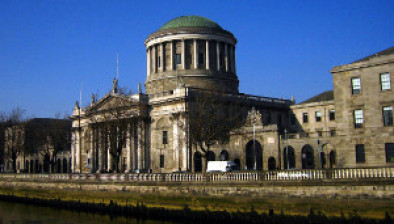NI High Court: Costs awarded against Home Office in visa delay case resolved shortly after proceedings issued

Northern Ireland’s High Court has awarded costs against the Home Office where their unexplained delay in issuing a visa forced the applicant to bring proceedings.

About this case:
- Citation:[2022] NIQB 20
- Judgment:
- Court:NI High Court
- Judge:Judge Adrian Colton QC
The court found that the applicant was justified in issuing the proceedings, despite the fact that her visa arrived five days after threatening proceedings and two days before the hearing.
Background
The applicant, originally from the Philippines, applied for entry-clearance to come to the UK in 2016, when she was aged 12. Her mother had British citizenship for some time and worked as a nurse in Northern Ireland.
She was initially refused entry on the basis that her mother was alleged to have dishonestly supplied a false document (a second birth certificate) with her application for entry-clearance.
That refusal decision was upheld on appeal to the First-tier Tribunal, and the Upper Tribunal, but was found to be “erroneous in law” by the Court of Appeal. Her case was subsequently reconsidered and ultimately allowed.
The Home Secretary sought to appeal the decision, but was refused twice. Therefore, the applicant argued, there was no basis whatsoever for refusing or otherwise delaying her visa.
The applicant’s solicitor issued the first pre-action protocol (PAP) letter in June 2021, claiming that the Home Secretary was bound to comply with the decision.
The Home Secretary claimed that the delay had occurred due to the fact that the visa application centre in Manila had closed. She was advised that the application had to transfer to Sheffield and that it would be treated as a priority.
The parties accepted that the Sheffield office attempted to contact the applicant’s solicitor without answer until September 2021. The clearance officer had a query about the applicant using the name on the illegitimate birth certificate which prompted the original refusal.
This was resolved, and the officer indicated that “the visa would be issued within 4-6 weeks”.
On 13 October (the last day of the six-week period) the applicant’s solicitor emailed the Home Office asking for the visa. There was no response, and the applicant’s solicitor issued a second PAP letter.
The applicant received legal aid on 29 October 2021 and judicial review proceedings were issued on 1 November 2021.
Judicial review proceedings
The proceedings sought judicial review in respect of the ongoing failure of the proposed respondent to promptly issue and provide the applicant with a visa.
On 3 November 2021 the applicant received email confirmation from the visa application centre that her processed visa application had been received by them. It was necessary for the visa to be printed onto the applicant’s passport. This was completed and the applicant’s passport with the visa was delivered in the Philippines on 6 November 2021.
The matter came before the court on 8 November 2021. The proposed respondent asked that the proceedings be dismissed at that stage without any order as to costs on the grounds that the application was now clearly academic.
However, the applicant sought to clarify some further matters with the Home Secretary, such as whether the applicant’s upcoming 18th birthday would affect her status, and whether she could extend her visa if she could not travel within the current visa period.
The Home Office confirmed that:
- There would be no issue with the applicant entering the UK after she turns 18 as the application was made prior to her 18th birthday; and
- The Home Office was unable to give any assurances that the visa would be re-issued should the applicant be unable to travel as planned, as cases are assessed on a case by case basis.
Due to these responses, and the fact that the visa had been received, the only remaining issue before the court was that of costs.
Costs
The court noted that costs are increasingly an issue in judicial review proceedings before leave is granted, and that the general rule is that the unsuccessful party should normally pay the costs of the successful party.
However, there is no particular rule in relation to costs for proceedings in judicial review applications.
Here, the applicant argued that she only achieved the outcome she hoped to achieve (her visa) after she issued and served the proceedings. She was effectively the “successful party” and was therefore entitled to her costs against the Home Secretary, applying ordinary costs principles.
However, the court also noted that the applicant received the visa within days of the proceedings being issued. It was argued that the provision of the visa was not influenced by the issuing of the proceedings. The process was “already in train and would have happened on the same date, whether or not proceedings had been issued”.
Therefore, she was not “successful” on foot of issuing proceedings. However, the court noted that she had sought further answers or concession from the Home Office in the form of the two questions posed to them, and therefore had in some way used the court proceedings as leverage.
Conclusion
The court ultimately accepted that the visa process requires time to complete all of the necessary administrative steps. However, the visa was meant to issue with a “start date” on 22 September 2021 and, for reasons which were not ascertained, it was not issued until after the proceedings were issued.
In these circumstances, it was appropriate to award costs to the applicant.
In the court’s view, the applicant was justified in issuing the proceedings and would have inevitably succeeded had the visa not been provided prior. The fact that the matter was resolved shortly after proceedings were issued meant that costs and court time were saved, but did not outweigh the applicant’s claim for costs.
Accordingly, the court dismissed the proceedings and ordered that the proposed respondent pay the applicant’s costs.










